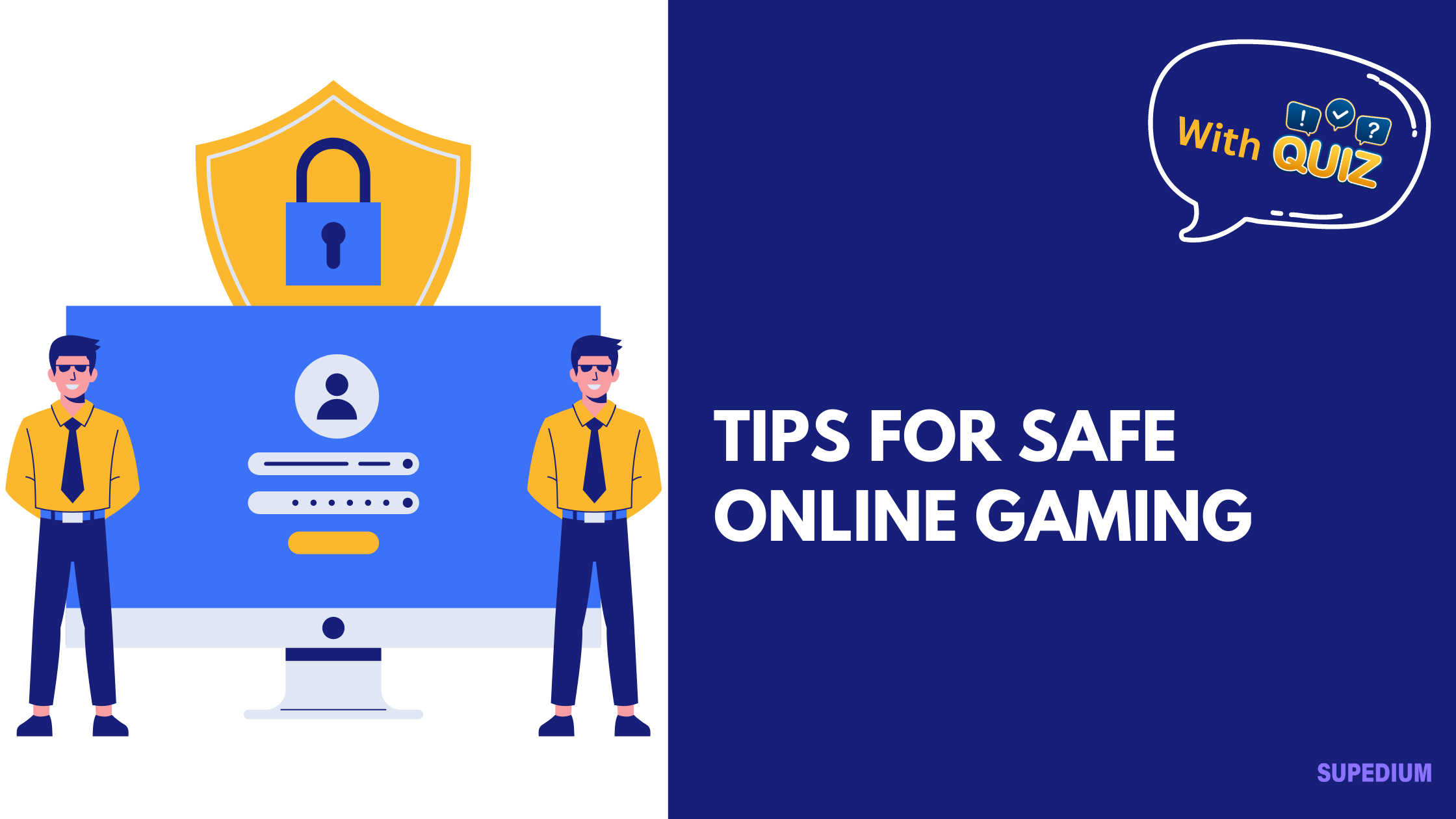Table of Contents
![]()
Online gaming has become an integral part of modern entertainment, offering immersive experiences across a wide range of genres and platforms. However, with its popularity comes the need to prioritize safety to protect yourself from potential risks. This article provides essential tips for safe online gaming, focusing on practices to safeguard your account, interactions, devices, and personal information.
Basic Safety Practices
Account Security
Create Strong Passwords One of the fundamental steps to ensuring your online safety is to create strong passwords. A robust password should include a combination of letters (both uppercase and lowercase), numbers, and symbols. Avoid using easily guessable information such as birthdays, common words, or sequences like “12345.” A password manager can help you generate and store complex passwords securely.
Enable Two-Factor Authentication (2FA) Two-Factor Authentication adds an extra layer of security by requiring a second form of verification in addition to your password. This could be a code sent to your phone or an authentication app. Enabling 2FA significantly reduces the risk of unauthorized access to your accounts, even if your password is compromised.
Privacy Settings
Adjust Privacy Controls Most gaming platforms and services offer privacy settings that allow you to control who can see your information and interact with you. Take the time to configure these settings to restrict access to your personal details and gaming activities. For example, you can set your profile to private, limit who can send you messages, and control who can see your online status.
Be Cautious with Personal Information While it might be tempting to share personal details such as your real name or location, it’s essential to keep this information private. The less personal information you disclose, the lower the risk of identity theft or unwanted attention.
Interaction with Other Players
Communication Safety
Be Cautious with Voice and Text Chat Online games often include communication tools such as voice and text chat. While these features enhance the gaming experience, they can also expose you to risks. Avoid sharing sensitive information such as your address, phone number, or financial details. If you encounter inappropriate behavior or harassment, use the in-game reporting tools to alert moderators.
Use In-Game Reporting Tools Most games provide tools for reporting toxic behavior, cheating, or harassment. Familiarize yourself with these features and use them to maintain a positive gaming environment. Reporting inappropriate conduct helps keep the community safe and enjoyable for everyone.
Avoiding Scams and Fraud
Recognize Common Scams Online gaming communities can be rife with scams. Common schemes include phishing attempts, where scammers try to trick you into providing your login credentials, and fraudulent offers for in-game currency or items. Be skeptical of deals that seem too good to be true and never click on suspicious links or download unknown attachments.
Secure Transactions If you make purchases or transactions within a game, ensure you use secure and trusted payment methods. Verify the legitimacy of sellers and avoid sharing payment information on unverified websites. For added security, use payment methods with fraud protection, such as credit cards or reputable payment services.
Safe Gaming Environment
Choosing Safe Platforms
Research Game Developers and Platforms Before downloading or purchasing a game, research the developer and platform to ensure they are reputable. Look for reviews and ratings from other users to gauge the game’s quality and security. Reputable developers typically have a track record of providing safe and enjoyable gaming experiences.
Download from Official Sources Always download games and updates from official sources such as the game’s website or trusted app stores. Avoid third-party websites, as they may distribute malicious software. Keeping your game client and related software updated ensures you benefit from the latest security patches and features.
Managing Screen Time
Set Time Limits Gaming can be highly engaging, but it’s essential to balance it with other activities. Set time limits for gaming sessions to prevent excessive screen time and ensure you have time for physical activities, social interactions, and other hobbies.
Take Regular Breaks Taking regular breaks during gaming sessions helps prevent eye strain, physical discomfort, and mental fatigue. Stand up, stretch, and rest your eyes every hour. Incorporating physical activity into your routine supports overall health and well-being.
Protecting Your Device
Use Up-to-Date Security Software
Install Antivirus and Anti-Malware Programs Protecting your device from viruses and malware is crucial for online safety. Install reputable antivirus and anti-malware programs, and ensure they are updated regularly to detect and neutralize new threats.
Keep Your System Updated Operating system and software updates often include security patches that address vulnerabilities. Regularly update your operating system, games, and any other relevant software to protect your device from potential threats.
Secure Your Internet Connection
Use a Firewall A firewall acts as a barrier between your computer and potential threats from the internet. It monitors and controls incoming and outgoing network traffic. Ensure your firewall is enabled and configured correctly to provide an additional layer of protection.
Encrypt Your Wi-Fi Secure your home Wi-Fi network by using WPA3 or WPA2 encryption. These protocols help protect your network from unauthorized access. Additionally, change the default router passwords to unique, strong passwords to prevent potential breaches.
Parental Controls and Supervision
Setting Up Parental Controls
Utilize Built-In Controls Most gaming platforms and devices offer parental controls that allow you to manage content, set time limits, and monitor gaming activity. Configure these settings according to your family’s preferences to ensure a safe gaming environment for younger players.
Monitor Gaming Activity Regularly review gaming logs and interactions to stay informed about your child’s gaming habits. Encourage open communication about their online experiences and address any concerns or issues that arise.
Educating Young Gamers
Teach Responsible Online Behavior Educate young gamers about the importance of privacy, respect, and responsible online behavior. Role-playing scenarios can help them practice safe responses to potential threats or inappropriate behavior.
Promote Balanced Gaming Habits Encourage children to engage in physical activities and explore interests outside of gaming. Balancing gaming with other activities supports overall development and helps prevent excessive screen time.
Reporting and Seeking Help
Know When and How to Report Issues
Identifying Serious Threats Be vigilant for signs of cyberbullying, harassment, or other serious issues. If you encounter such threats, report them to the appropriate authorities or support teams. Recognizing and addressing these issues promptly helps maintain a safe gaming environment.
How to Report Use in-game reporting tools and contact support teams if you encounter inappropriate behavior or security threats. If necessary, escalate issues to law enforcement for further investigation and resolution.
Seek Support When Needed
Online Resources and Support Groups Many online resources and support groups offer help and advice for dealing with online safety issues. Explore forums, organizations, or mental health resources that provide guidance and support.
Professional Help For severe issues such as cyberbullying or significant mental health concerns, seek professional assistance from counselors or therapists specializing in online safety and mental health.
Conclusion
Ensuring safety while online gaming involves a combination of good practices and vigilance. By implementing strong passwords, using privacy settings, and being cautious with interactions, you can protect yourself and enhance your gaming experience. Remember to stay informed, use available tools, and seek support when needed. Prioritizing safety helps create a positive and secure environment for all gamers.






Be the first to comment